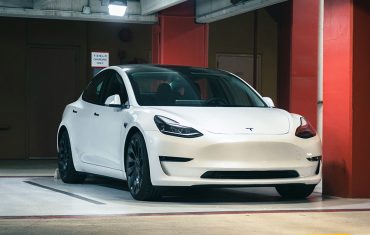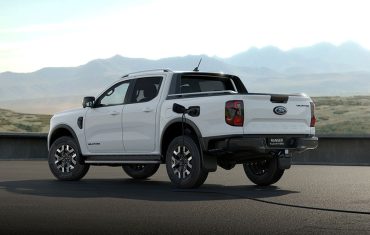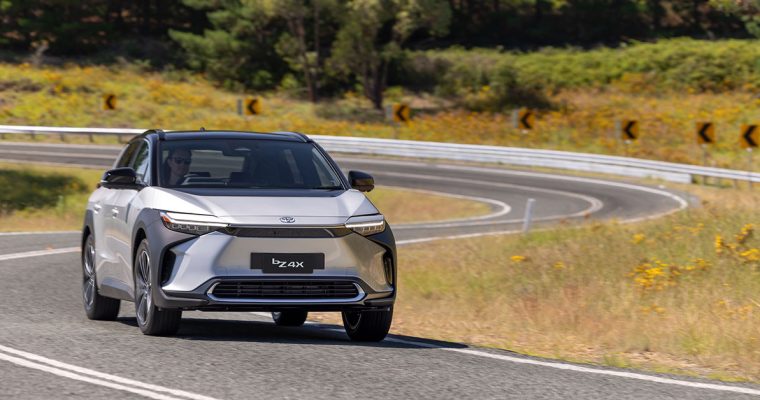
Toyota bZ4X Review
DriverToyota arrived surprisingly late to the electric car party, especially considering the Japanese carmaker has been a pioneer of battery technology for more than 25 years thanks to its extensive range of hybrid-powered vehicles.
What we have here is the brand’s first dedicated, the oddly named bZ4X: a mid-sized, five-seat SUV that is roughly the same size as its hugely popular RAV4 and jointly developed alongside the Subaru Solterra.
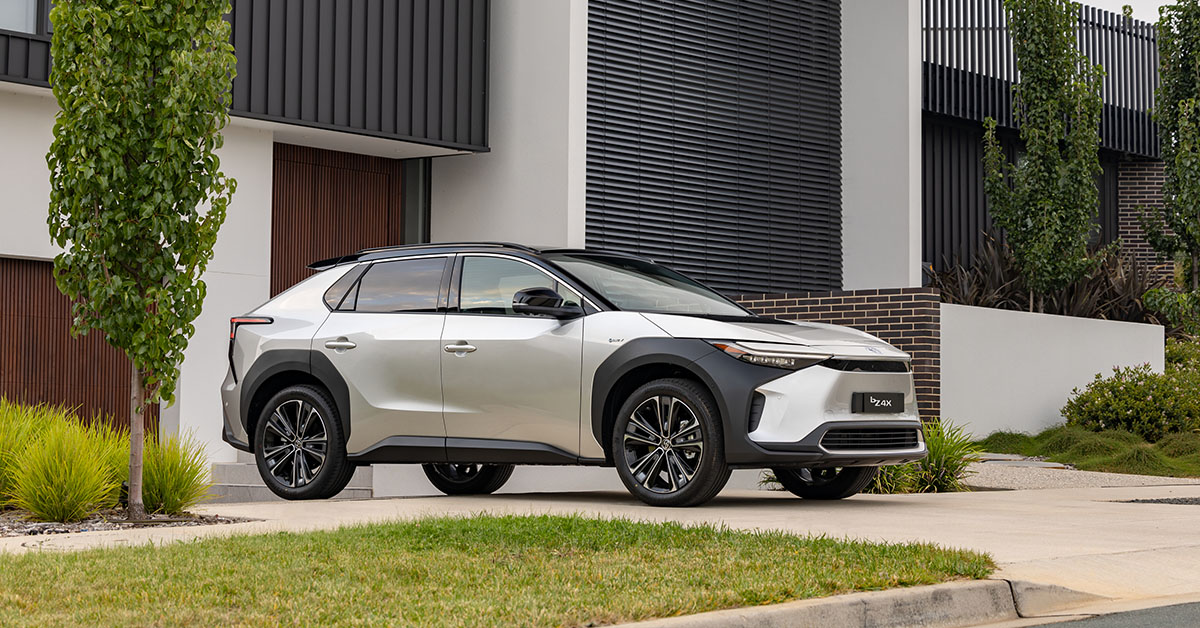
Toyota’s arrival on the EV landscape should be a milestone moment for electric cars, yet the bZ4X is a car that doesn’t break new ground in terms of technology, driving range, battery technology or charging times.
The Japanese brand has been somewhat hesitant to create fully electric vehicles under its former global president, Akio Toyoda, who consistently said rival companies were making them under duress due to regulation changes forced into place by political pressure. Toyoda often dismissed EVs as the silver bullet to reducing toxic emission outputs generated by the automotive industry, claiming they were just one of several solutions, including hydrogen fuel cell vehicles and alternative fuels, such as ammonia, that could keep the internal combustion engine alive.
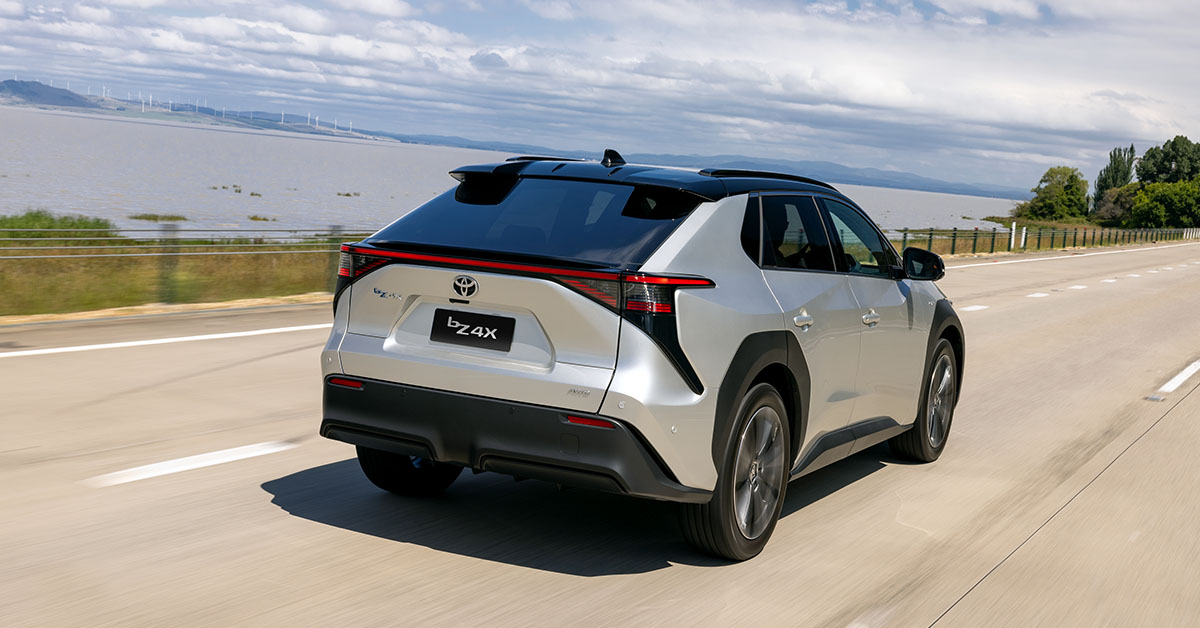
Against all the noise, Toyota has also spent billions in trying to perfect lighter and more energy-efficient solid-state batteries for large-scale production and the specific application for use in electric vehicles.
The bZ4X is the first in its series of Beyond Zero (bZ) fully electric vehicles, with the company registering global trademarks for up to nine models under development, including regular passenger car models from bZ1 through to bZ5 as well as a series of crossover models denoted by an X at the end of the name badge.
Despite Toyota’s benchmark reputation for quality and reliability, the bZ4X has had a troubled birth. It arrives in New Zealand showrooms 18 months overdue following an embarrassing global recall for faulty wheel nuts – yep, the wheels were literally falling off Toyota’s first EV – which then forced Toyota NZ to wait for an important software update before introducing it locally.
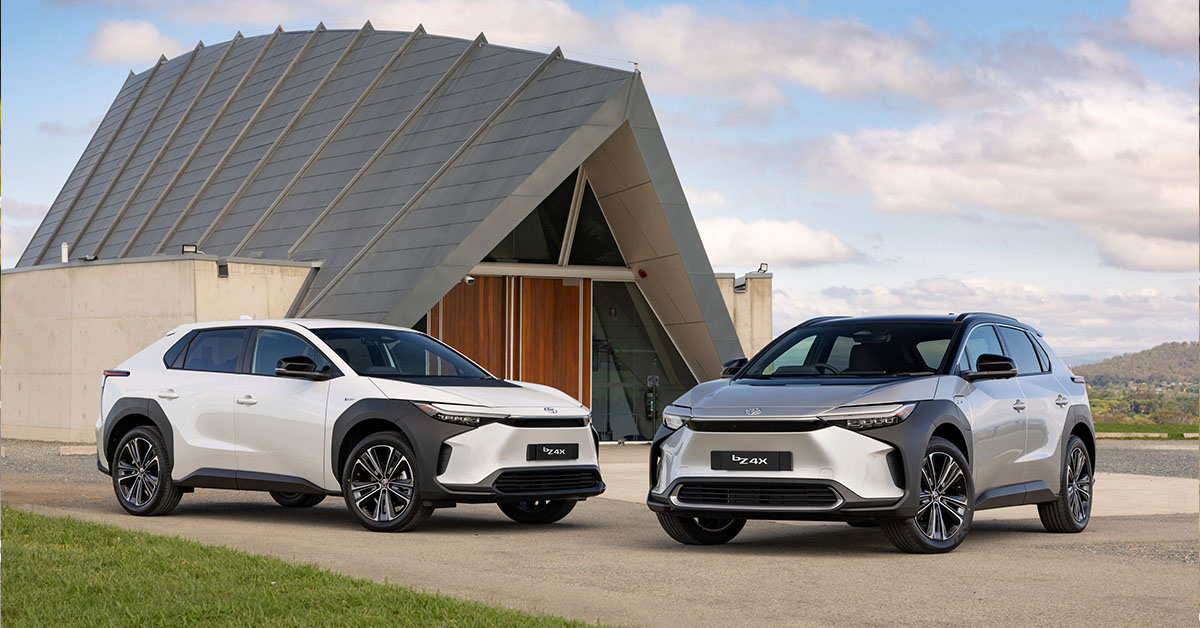
And here it is, offered in two model grades that are largely dictated by the powertrain configuration. Both variants use a liquid-cooled lithium-ion battery pack with a total capacity of 71.4kWh, but customers can choose between either having the entry-level Pure model with two-wheel drive or the range-topping Motion with AWD we’re testing here.
The Pure model, which costs $72,990 (plus on-roads) features a single electric motor on the front axle that produces 150kW of power and 266Nm of torque, while the Motion, which costs $82,990 (plus on-roads) has two smaller and more efficient electric motors – one on each axle that generate 80kW and 168.5Nm – for a total combined output of 160kW and 337Nm.
Toyota claims the bZ4X models have the ability to cover 442km and 415km respectively on a single charge. The battery pack has a maximum charging capacity of 150kW on a DC charger, which can replenish the battery between 10-80 percent in around 30 minutes. Using a regular domestic outlet to charge the bZ4X, the battery can be filled in less than seven hours.
Both models have an extensive list of standard equipment LED head and taillights, wireless phone charging and dual-zone climate control. Inside the cabin, there’s a twin-digital screen set-up with a 7.0-inch unit for the instrument cluster and a 12.3-inch widescreen display for the infotainment system, which includes cloud-based sat nav, DAB+ digital radio, Bluetooth connectivity and smartphone mirroring for Apple and Android devices.
The bZ4X scored a maximum five-star ANCAP safety rating when it was first testing in 2022 and is fitted with a comprehensive suite of advanced driver aids and crash avoidance systems. Under the umbrella of the Toyota Safety Sense banner, all bZ4X versions are equipped with seven airbags, autonomous emergency braking with pedestrian and daylight cyclist detection, road sign assist, adaptive cruise control, lane keeping assistance, front and rear parking sensors with a reversing camera.
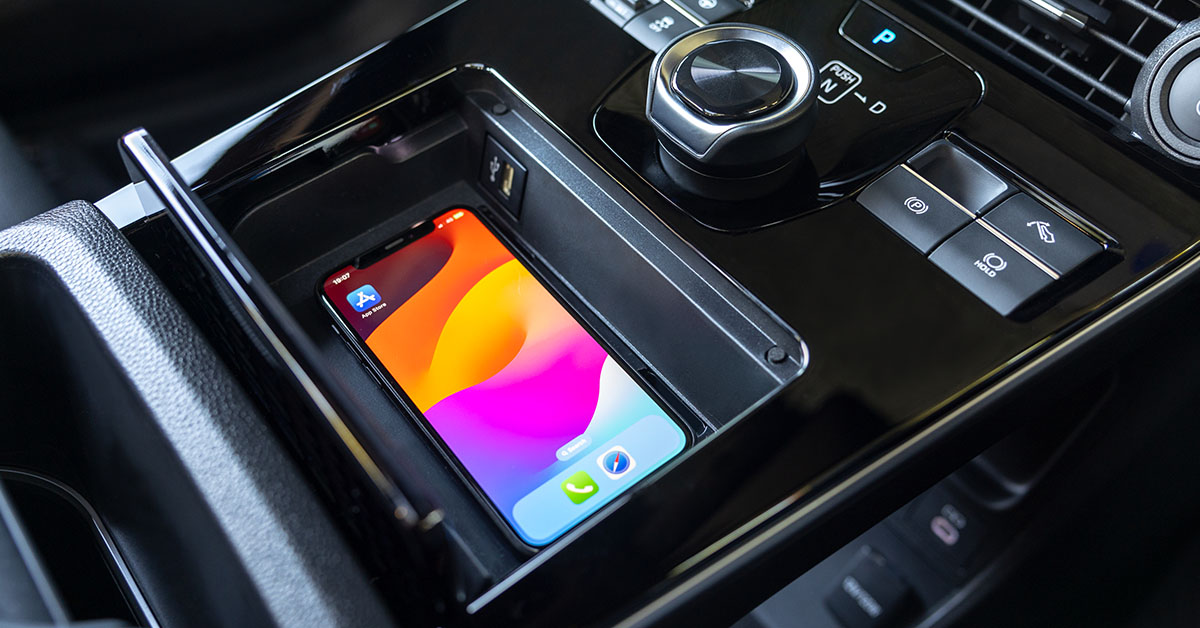
Apart from the additional electric motor, the flagship Motion model also bundles into the deal a bunch of additional creature comforts such as fake leather trim, heated and ventilated front seats, a premium nine-speaker audio system from JBL, a twin-pane panoramic glass sunroof, a powered rear tailgate and larger 20-inch alloy wheels (up from 18-inch on the Pure).
The Toyota bZ4X is covered by a standard five-year/unlimited-kilometre warranty that extends to seven years on the motors and driveline if the vehicle is properly maintained according to the prescribed servicing schedule, which is every 12 months or 15,000km and costs $220 per visit.
The battery is under warranty for 10 years and guaranteed to maintain at least 70 percent of its maximum capacity after eight years, although Toyota claims its internal target is for it to hold 90 percent state of health after 10 years or 240,000km.
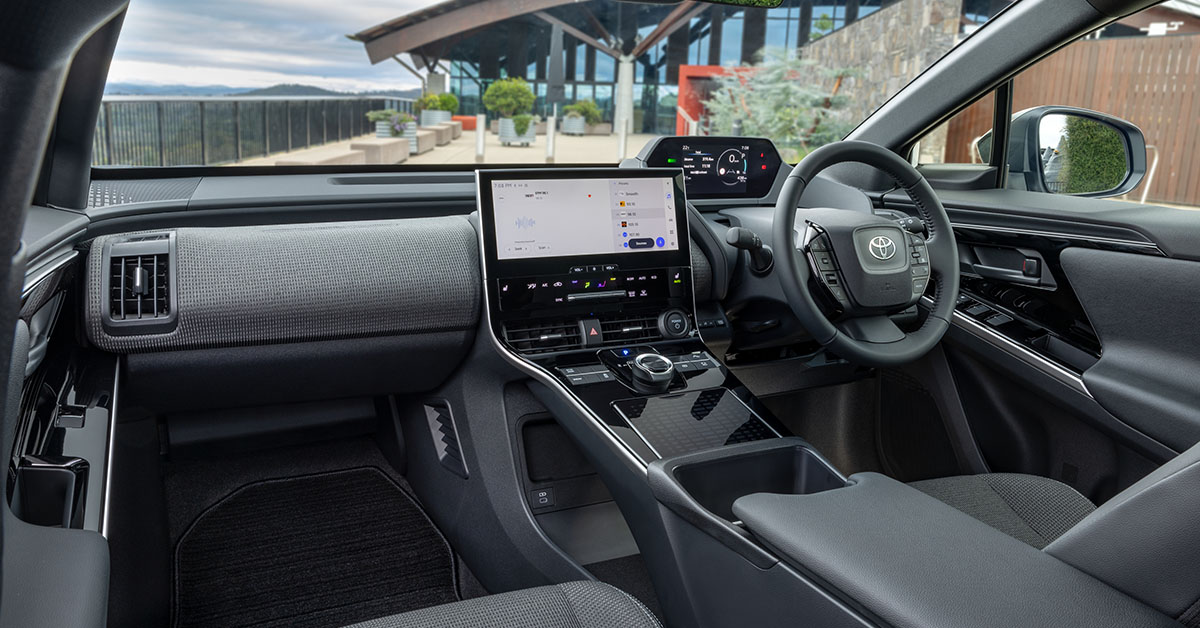
Inside the cabin, the interior design is far less conservative than mainstream Toyota models like the Camry, Corolla and RAV4, with interesting elements such as the high-mounted instrument cluster that looks like it was inspired by a traditional Samurai’s helmet, the floating pillar-covered in a soft fabric that forms the backbone of the dashboard, and the tablet-style touch screen that rises up and dominates the centre console.
It definitely has a more modern look and feels about it, but without any compromise on practicality. There are two cupholders, a covered wireless charging pad and a lidded console in the centre tunnel, twin bottle holders in each door bin and a large, open space underneath with additional USB and power outlets.
I do take some umbrage with the position of the instrument cluster though, and its relationship with the odd-sloping steering wheel. While there’s plenty of adjustment in the driver’s seat to suit a wide variety, I had to position the wheel lower than I normally prefer to have a clear view of the information displayed on the instrument cluster. I tried countless combinations of adjustments to the seat and steering wheel, but never found the perfect solution: it was either drive blindly or with the steering wheel in my lap.
Thankfully, the front seats are super comfortable – seriously, among the best in the business – and yet supportive in all the right areas, and there’s excellent vision of the road ahead. The sloping rear windscreen does limit the rear view to a narrow portal though.
There’s not an abundance of room in the rear seats, but certainly enough for two adults or three small children to travel in relative comfort.
The boot isn’t as big as say a RAV4, with 410L of cargo carrying capacity, and there’s no spare tyre, just a tyre repair kit. The bZ4X doesn’t have any additional storage space under the bonnet like other EVs, nor does it have a traditional glovebox.
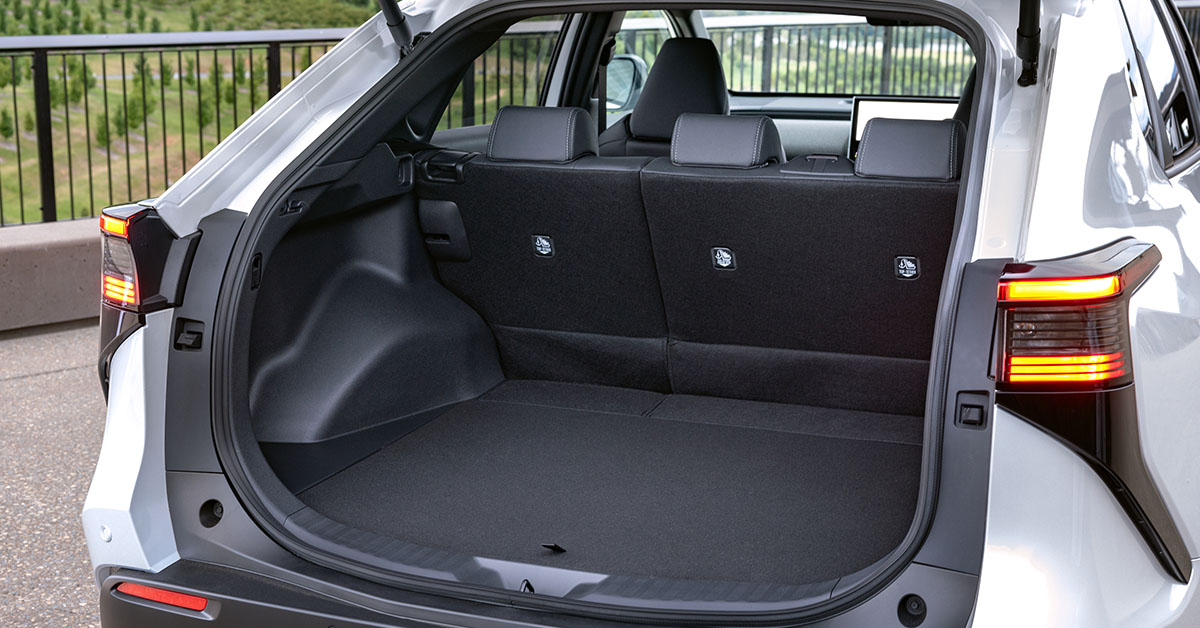
For all that, the bZ4X doesn’t feel as foreign to drive as many other electric vehicles. In fact, it feels more normal than most.
Of course, the electric motors are seamless and silent and provide instant thrust as soon as you step on the throttle. But, unlike other EVs, it won’t snap your neck if you’re right foot is too heavy.
Similarly, it doesn’t knock you forward when you lift off with a heavy load of regenerative power in its default drive mode. Instead, it gently coasts along much like a conventional car.
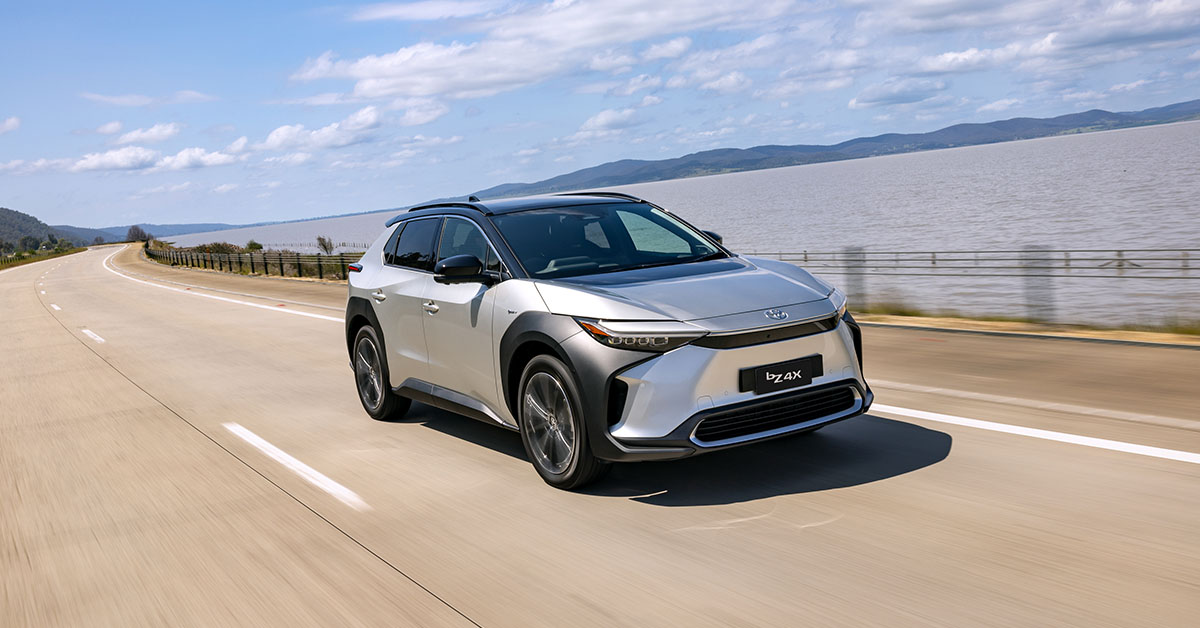
It will even creep forward if you release the brake pressure while stationary, much like a vehicle with an automatic transmission does.
There is a one-pedal driving mode at the press of a button on the centre console that introduces more regen when slowing down, but it is much gentler than most other EVs and not aggressive enough to pull the bZ4X to a complete stop. In all situations, the driver will still need to use the conventional brake pedal, which amplifies just how familiar the driving experience is.
As for the rest of the package, the steering is well-weighted with a natural feel across its arc, the suspension is compliant over most surfaces, and it has a surefooted sense of security through the bends thanks to its low centre of gravity. Overall, it isn’t all that exciting but a very pleasant car to drive – just as you’d expect from Toyota.
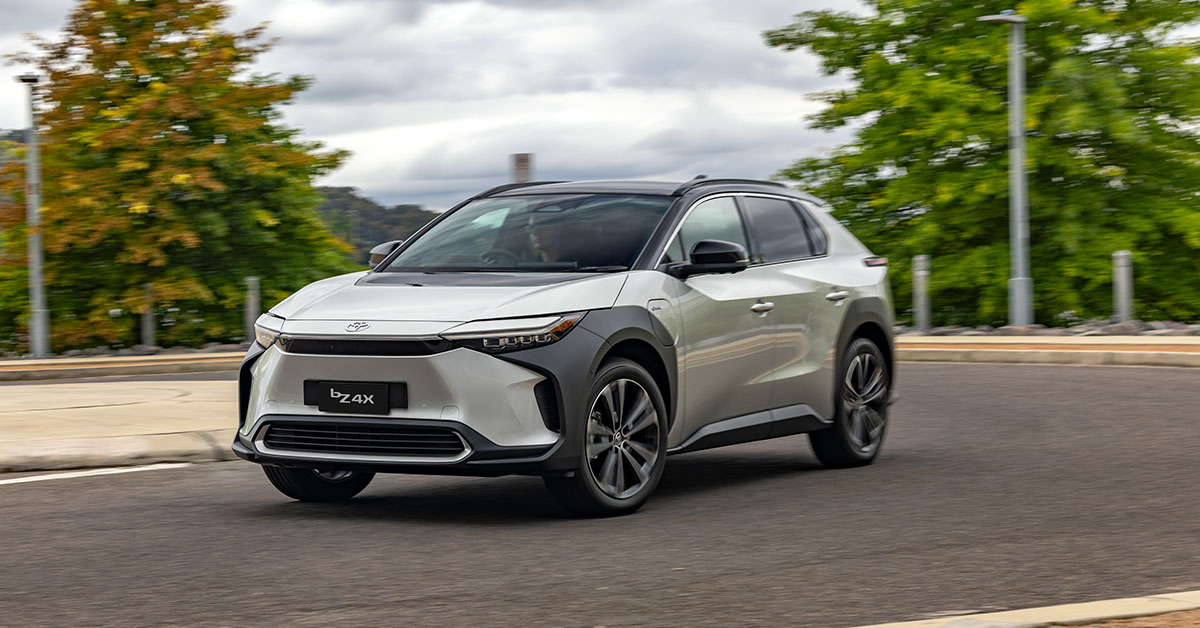
However, it’s not perfect. The 20-inch wheels do make the ride a bit fidgety over rough surfaces and jarring on sharp bumps, and its limited driving range probably restricts it to within the city limits. Otherwise, family road trips will be long and dictated by charging locations.
At the end of the day, the Toyota bZ4X doesn’t break any new ground for electric vehicles, but neither does it fall too far short in area that it should be rubbed out of consideration.
If anything, it is the Toyota of EVs – competent, practical, comfortable and, most likely, just as dependable as any of its other cars. And the fact it is a Toyota, undoubtedly THE most trusted automotive brand on the planet, might be enough to silence any doubts about the long-term viability and reliability of electric vehicles.
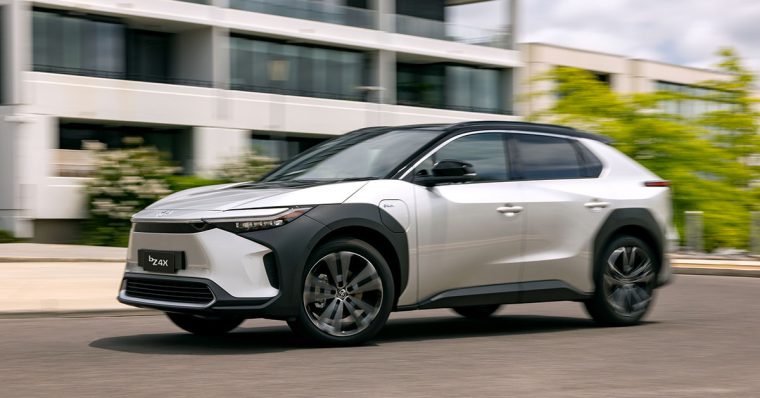
Speak to SG Fleet to see when and how electric cars will become a successful part of your business mobility.
 Driving Insights
Driving Insights

